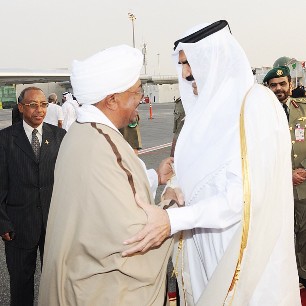Sudan’s opposition PCP calls for a transitional government
March 25, 2013 (KHARTOUM) – The Popular Congress Party (PCP) has urged president Omer Hassan al-Bashir to hand over power to a transitional government which allows for freedoms and puts an end to internal strife, saying that these are enough measures to suspend the International Criminal Court (ICC) prosecution and secure a pardon from the people of Darfur.

Last week the Sudanese president reiterated his intention to leave his post, saying that Sudan is in need of “fresh blood”. However, members of the governing National Congress Party (NCP) North Kordofan bloc in the parliament have started working on a petition to be signed by their peers in order to press the president to reconsider his decision.
Omer emphasised the unity of the National Consensus Forces (NCF) – Sudan’s opposition alliance – stressing that there is no intention to remove the National Umma Party (NUP) from its ranks, saying that the alliance will work to overcome the standoff between the NUP and the Arab Ba’ath Party noting that the NCF are against isolating any political party.
“We would even welcome the NCP in the political arena” Omer said.
Omer said that the leading body of the NCF will receive an important report on the performance of the alliance tomorrow, criticising the government for signing an agreement with a splinter faction from the Justice and Equality Movement (JEM) in Doha, saying that Khartoum is continuing its unilateral approach and is repeating its mistakes, adding that “partial agreements will not solve the problem in Darfur”.
Omer welcomed the implementation matrix which has been signed between Khartoum and Juba earlier this month, expressing fears that Khartoum had resorted to peace in order to cover the financial cost of its internal wars, saying “I doubt Khartoum’s intentions; I think they are seeking money to finance their internal wars”.
As part of the deal South Sudan, which broke away from Sudan in 2011, is due to imminently resume exporting its oil for Sudan for a fee agreed in a Cooperation Agreement signed in September. Juba shutdown oil production in January 2012 as part of an oil dispute with Khartoum. The move has has severely damaged the economies of both countries.
(ST)
